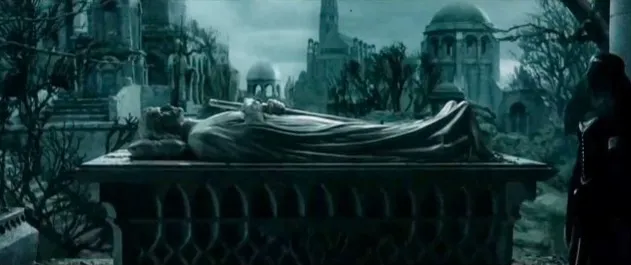Table of Contents
Imagine a man born in Rome in 366 AD, a full 110 years before the fall of the Western Roman Empire. He would have matured, married, and died, never knowing the previous glories of Rome except from tales passed down from generations past. In his own generation, he would have watched political divisions form and foreign threats rise. He would have likely grown weary at the lavish excesses and personal incompetence of the emperor. In short, he would have known an entire life of nothing but decline.
Yet, what is more, he would have likely never lived to see the fall. The bizarre catharsis afforded by the Fall of Rome would have been completely alien. Plato once remarked that secretly in his heart, every man longs for the end of the world. Whether or not this is true, there is something remarkably unsatisfying about experiencing all of the symptoms of impending collapse but never seeing the end.
Frequently, political pundits and historians compare this era in American history to the late days of the Roman Empire. Divisions of class, creed, and political factions today are comparable to those thousands of years ago. Instability and regime change worried those of yesteryear as they do today. Fears regarding the United States’ preeminence in the global sphere also mirrors the Roman Empire’s declining cultural influence.
It is hard to deny many of these parallels. People seem more and more unsure of America’s future. Younger generations report higher and higher levels of anxiety regarding the rest of their lives. The teen suicide rate is the highest it has ever been in recorded human history. The ineffable optimism of the post-War United States has shifted to a more fateful pessimism. There seems to be a palpable general sense of dread and worry that most people my age feel regarding the future, like some increasingly distorted background radiation—and who can blame them? Foreign Debts, Climate Apocalypse, an increasingly Orwellian surveillance state feel more real and proximate for today’s young people.
Yet, through all of this, I think back to our friend from 366 AD. Will we, like him, be outlived by the collapse? Will we, like him, know an entire life of decline without seeing the fall? Will the end of the world and the fall of the West take forever?
It sounds like a depressing thought, and quite frankly it is. Yet, at home on break, I discovered that the work of J.R.R. Tolkien can be a comfort for this depressing thought experiment. His concept of the Long Defeat, woven through his stories and his world of Middle Earth, provides a framework to draw from in one's convictions.
This concept is rooted in two of the main influences in his life and work. Firstly, the Anglo-Saxon pagan belief that the arc of time bends forever towards a great and inevitable ruin. This is similar to the concept of Ragnarök, which can be seen in Gollum’s riddle to Bilbo:
This thing all things devours; Birds, beasts, trees, flowers; Gnaws iron, bites steel; Grinds hard stones to meal; Slays king, ruins town, And beats mountain down.
Time, of course, is the answer. Things don’t naturally tend towards good ends. Rather, in the absence of distinct and direct effort towards the good, that which is right and honest will slowly decay away. This is fundamentally distinct from the Whig interpretation of history, which posits an inevitable linear progression towards a human centered utopia.
Yet, the second influence on Tolkien in his world comes from his simple Christian Faith, in his belief that at the end of all things, at the end of all that ruin, there is a victory over evil, as put forth in the Book of Revelation, which Tolkien would have likely known by heart. The glory of the final battle in Middle Earth, where good triumphs and the world is made anew, mirrors the battle in Revelation, when evil is defeated once and for all and the world is made anew, as well as the heroic, moral pagan writings that Tolkien studied, where at the end of Ragnarok a new earth is made.
Likewise, King Théoden rides to Gondor at the battle of Pelennor fields, knowing he will die in the process. Fingolfin, the High King of the Noldor, devastated after the Dagor Bragollach, elects the impossible challenge to face Morgoth alone. Yet, after all this ruin and defeat, Gondor still regains its king, the Valar still arrive across the sundering seas at the call of Earandil and the world is made anew.
As a result, to fight the Long Defeat is synonymous with fighting that daunting and inevitable battle—one that seems impossible, but must be done. These stories are reminders that it is our duty to resist such decline, and stand firm in your convictions of the Good, ever with the hope that “the day might come again.”
Whether or not we live to see the end of all things, whether or not some interesting apocalypse occurs in our lifetimes, it is nonetheless an honor to fight the Long Defeat. The notion that it is our duty to carry on doing what is right in the face of future fears is a comforting one; to play a small part in the fight against the Long Defeat through all the ages of the world.









